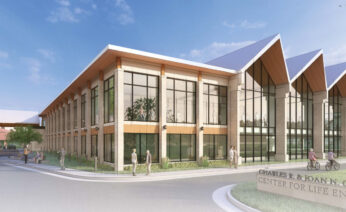
When Is the Right Time for Assisted Living
Deciding when it’s time for a loved one to transition to assisted living can be a difficult and emotional decision. As adult children, we want to ensure that our parents are receiving the care they need while also respecting their independence and autonomy. Here we’ll explore the signs that may indicate it’s the right time for assisted living and discuss how to approach this sensitive topic with empathy. We hope it helps you understand and reaffirms your thoughts on safeguarding someone’s health and happiness.
Declining Physical Health
One of the main indicators that it may be time for assisted living is a significant decline in physical health. It comes as no surprise that we all become less nimble as we grow older. If you notice that your parent is struggling with daily tasks such as bathing, dressing, or preparing meals, it may be a sign that they require more assistance than can be provided at home. Additionally, falls and accidents become more common as individuals age, and if your loved one has experienced multiple incidents, it may be an indication that they would benefit from the 24/7 care and supervision available at an assisted living facility.
Social Isolation
Another important observation to consider when determining the right time for assisted living is social isolation. Many older individuals find themselves becoming increasingly isolated as they age, especially if they no longer have a spouse or close friends nearby. Loneliness and lack of social interaction can have a significant impact on mental and emotional health. Assisted living offers a built-in social network, with opportunities for group activities, outings, and the companionship of fellow residents. Being surrounded by others who are going through similar experiences can provide a sense of community and help combat feelings of loneliness.
Memory Loss and Cognitive Decline
If you notice a decline in cognitive function, such as memory loss and confusion, it may also indicate it is time for assisted living. Conditions like dementia and Alzheimer’s disease can progressively worsen over time, making it increasingly challenging for individuals to live independently. Safety becomes a significant concern, as those with memory loss may forget to take medication, leave the stove on, or wander off, putting themselves at risk.
Rest assured, there are very specialized memory support programs, such as the Montessori Inspired Lifestyle®, for those who need it most. It’s worth researching, and Larksfield Place is the only Kansas community that offers this level of memory care residence with trained staff who practice ongoing education to retain this credential.
Declining Nutritional Intake
It’s not uncommon for appetite to decrease later in life. A loved one may struggle to maintain a balanced diet. Sometimes this is difficult to monitor since you can’t be present for every meal. Poor nutrition can lead to a variety of health issues, including weight loss, a weakened immune system, and muscle weakness. Assisted living communities offer regular, nutritious meals that are tailored to meet the dietary needs of older adults. Trained staff can ensure that residents are eating well and receiving the necessary nutrients to maintain their health.
Decreased Mobility and Increased Risk of Falls
A decrease in mobility and an increased risk of falls is a significant concern for aging individuals. Conditions such as arthritis or joint problems can make it difficult for them to move around without assistance. This lack of mobility can lead to a sedentary lifestyle, which in turn can result in muscle weakness and reduced overall health. Assisted living facilities offer various amenities and programs aimed at promoting physical activity and mobility. From exercise classes to rehabilitation services, senior living communities focus on improving the overall physical health and independence of their residents and, as a result, their quality of life.
The Need for Personalized Medical Care
As our loved ones age, they often require more specialized medical care to manage chronic conditions or health issues. Assisted living facilities have access to skilled medical professionals who can provide personalized care, medication management, and assistance with activities of daily living. They have the resources to ensure residents receive the necessary medical attention, reducing the anxiety of family members who may not have the medical knowledge or time to provide the level of care required.
Taking Care of the Caregiver
Lastly, and closely related to the declining physical health of a loved one, is the toll it can take on primary caregivers. Yes, keep yourself in mind. It is not uncommon for adult children or friends to take on the responsibility of caring for their aging loved ones while juggling their own careers and families. However, this constant demand can result in caregiver burnout, where your physical, emotional, and mental health suffers. Recognizing the signs, such as chronic fatigue, feelings of resentment, or the neglect of one’s own needs, is crucial. Assisted living can provide much-needed relief, allowing individuals to prioritize their own well-being while ensuring their loved one receives the care they need.
Discover a Welcoming Community and Exceptional Care at Larksfield Place
When contemplating whether assisted living is right for a loved one, it is essential to find someone who can provide the necessary answers to help you make informed and confident decisions. Larksfield Place supports loving families every day that way. We offer excellent health services and lots of social events and community activities. As you think about your options, feel free to reach out to us to schedule a tour or ask for additional information about our Wichita assisted living community.



